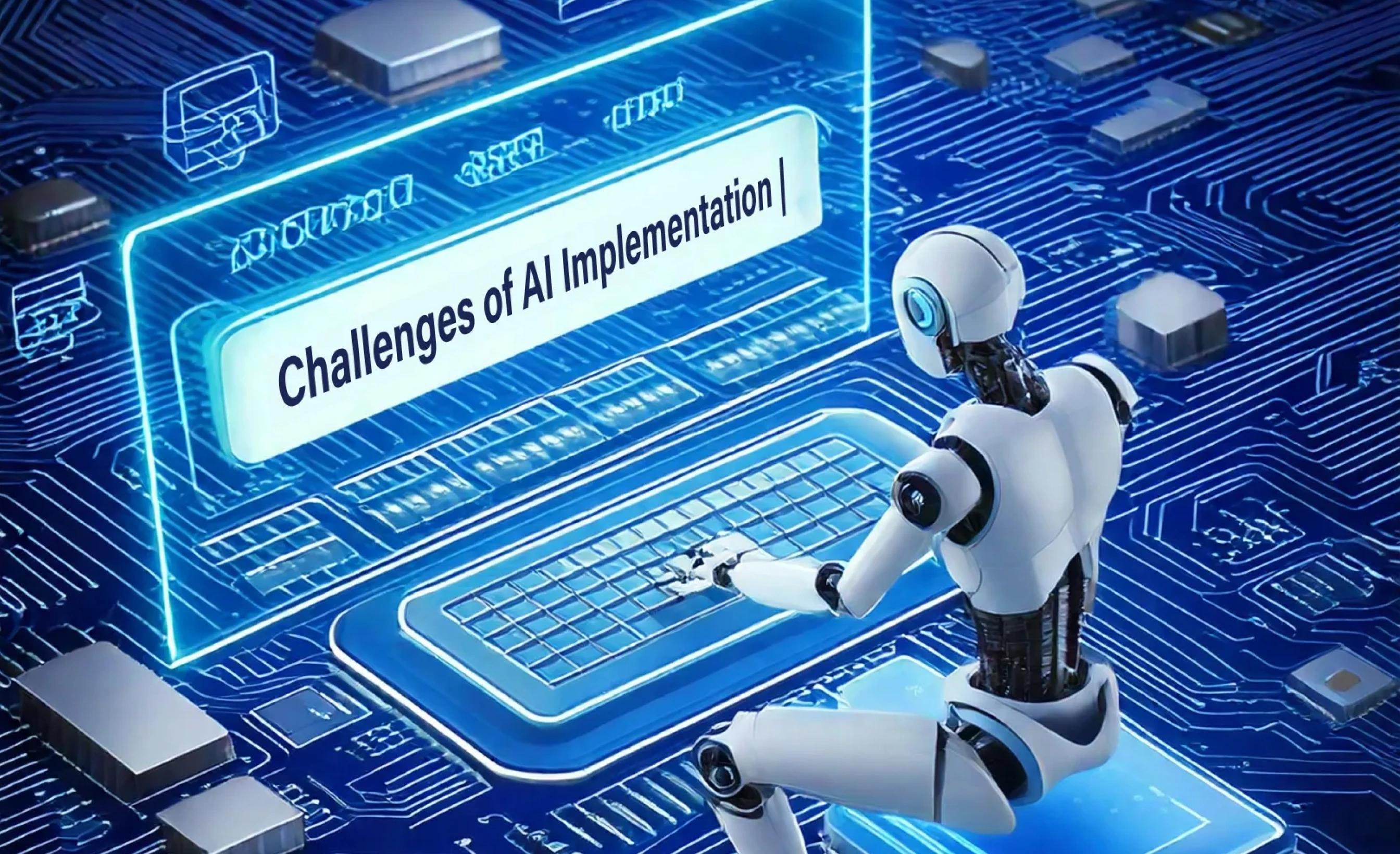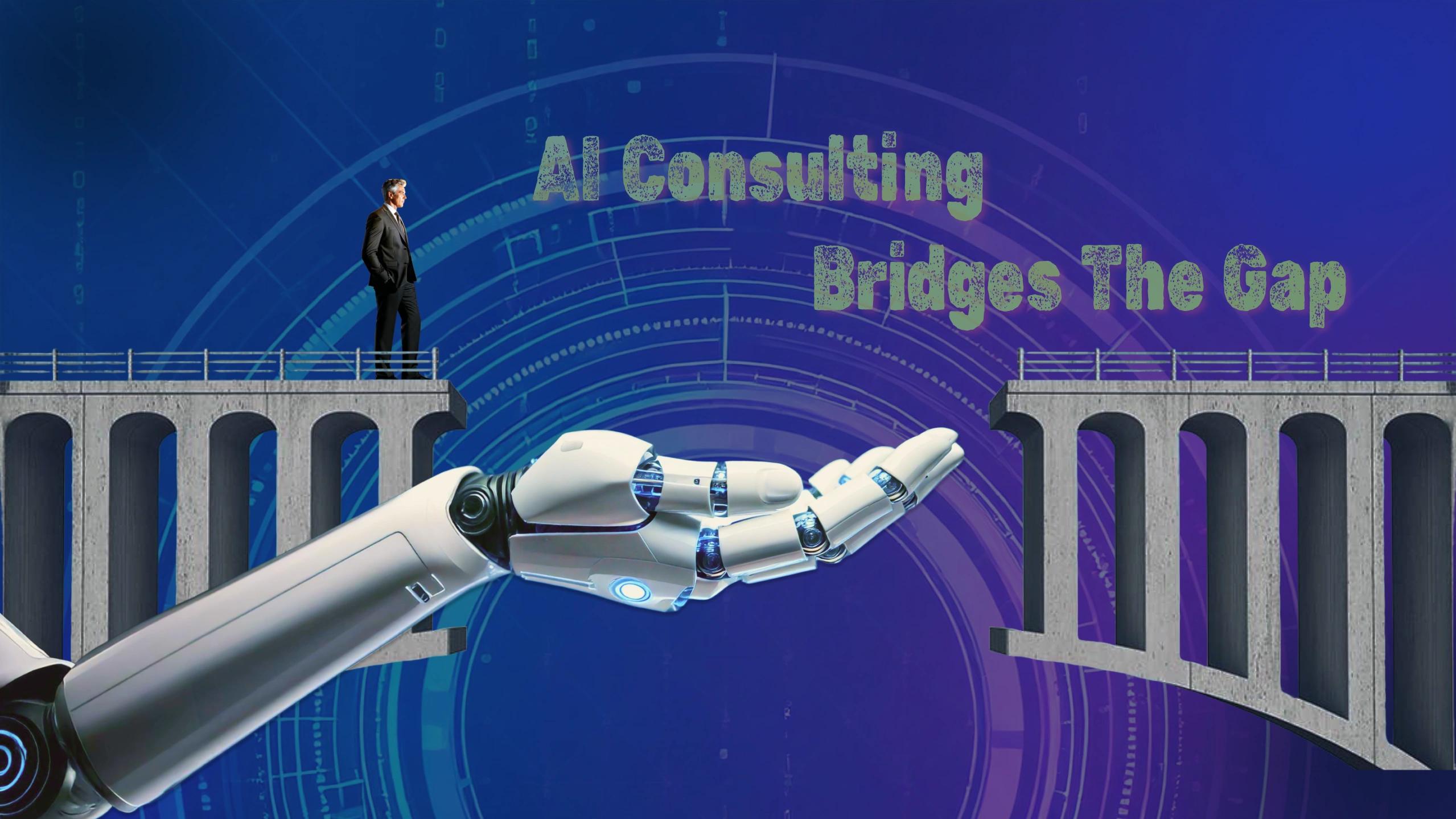What if AI isn’t failing businesses, businesses are failing AI?
Despite the hype surrounding Artificial Intelligence (AI), a surprising truth emerges: 85% of AI initiatives never leave the pilot phase. Companies invest millions in cutting-edge technology, only to find themselves stuck in cycles of experimentation with little to show for it.
This failure isn’t because AI lacks potential. In fact, by 2030, AI is projected to add $13 trillion to the global economy, according to McKinsey. The problem lies in the approach. Businesses often underestimate the complexity of transforming AI from a promising concept into a practical, results-driven solution.
Enter AI consulting, the often-overlooked force behind the most successful AI implementations. It’s not about the tech you have – it’s about the expertise guiding it. AI consulting bridges the gap between innovation and execution, helping organizations turn potential into performance.

The Challenges of AI Implementation
Despite significant investments, many organizations struggle with AI adoption. The challenges are rarely technical alone; instead, they stem from systemic and operational gaps.
- Data Quality Issues
Poor data is one of the most significant barriers to AI success. According to a 2024 Gartner report, 40% of AI projects fail due to issues with data quality, quantity, and accessibility. AI models are only as good as the data they’re trained on. Without clean, structured, and representative datasets, even the most advanced algorithms deliver subpar results. - Governance Complexities
AI’s power lies in its ability to automate and optimize, but this also raises concerns about compliance, ethics, and bias. A study by Deloitte found that 56% of organizations cite governance as a major challenge in scaling AI initiatives. Without proper guardrails, teams often find themselves paralyzed by regulatory hurdles or reputational risks. - The Lab-to-Reality Gap
Many AI projects succeed in controlled environments but fail to deliver results in real-world conditions. A report from McKinsey notes that AI projects that don’t align with core business needs are 2.5 times more likely to fail. The disconnect between theoretical capabilities and operational requirements often derails implementation efforts.
How AI Consulting Bridges the Gap
AI consulting services address these challenges head-on, offering strategic expertise to transform technological potential into tangible results. Here’s how:
1. Strengthening Data Foundations
AI consultants prioritize data quality, ensuring that organizations have the clean, consistent, and relevant data needed to train reliable models. This involves establishing data governance frameworks and implementing tools for real-time data monitoring. For instance, AI-driven retailers like Amazon use advanced analytics to streamline supply chains and predict customer preferences, demonstrating the value of a solid data foundation.
2. Building Practical Governance Models
AI consulting teams help businesses create governance structures that balance innovation with responsibility. This includes designing transparent AI systems to avoid bias, ensuring compliance with data protection laws, and aligning AI outcomes with organizational goals. By doing so, they enable companies to scale AI while minimizing risks.
3. Delivering Business-Driven Solutions
AI consultants focus on aligning AI projects with business objectives, ensuring that solutions address real-world challenges. For example, predictive maintenance systems in manufacturing have reduced downtime by up to 30%, according to Deloitte. By targeting high-impact areas, consultants ensure that AI initiatives deliver measurable value.

Beyond Technology : The Human Element
The biggest breakthroughs in AI adoption come from understanding that it’s not just a technological endeavor—it’s a human one. Successful AI initiatives require cultural shifts, organizational buy-in, and a commitment to continuous learning.
According to PwC, 67% of executives believe their workforce needs to be re-skilled to maximize AI’s benefits. AI consultants play a crucial role here, offering training programs and fostering collaboration between technical teams and business leaders.

Moreover, they help organizations navigate change management, ensuring that employees embrace new AI-driven workflows. This human-centric approach ensures that AI adoption is not only seamless but also sustainable.
The Future of AI Consulting
As AI continues to evolve, the demand for consulting services will only grow. By 2025, AI will be a top-five investment priority for more than 30% of Chief Information Officers, according to Gartner. However, organizations that succeed won’t just be those that invest in AI—they’ll be the ones that invest in expertise.
AI consulting provides the roadmap for long-term success, transforming isolated initiatives into cohesive, scalable strategies. From improving operational efficiency to driving customer satisfaction, consulting ensures that AI delivers real business impact.
Your Next Steps
The path to AI success begins with the right guidance. Whether you’re just starting your AI journey or looking to scale existing initiatives, consulting can help you overcome challenges and achieve your goals.
Consider the state of your organization’s AI efforts. Are you stuck in the pilot phase, or are you ready to scale? The difference between experimentation and transformation lies in having the right partner to guide you.
The future of business is AI-driven. The future of AI is consulting.


